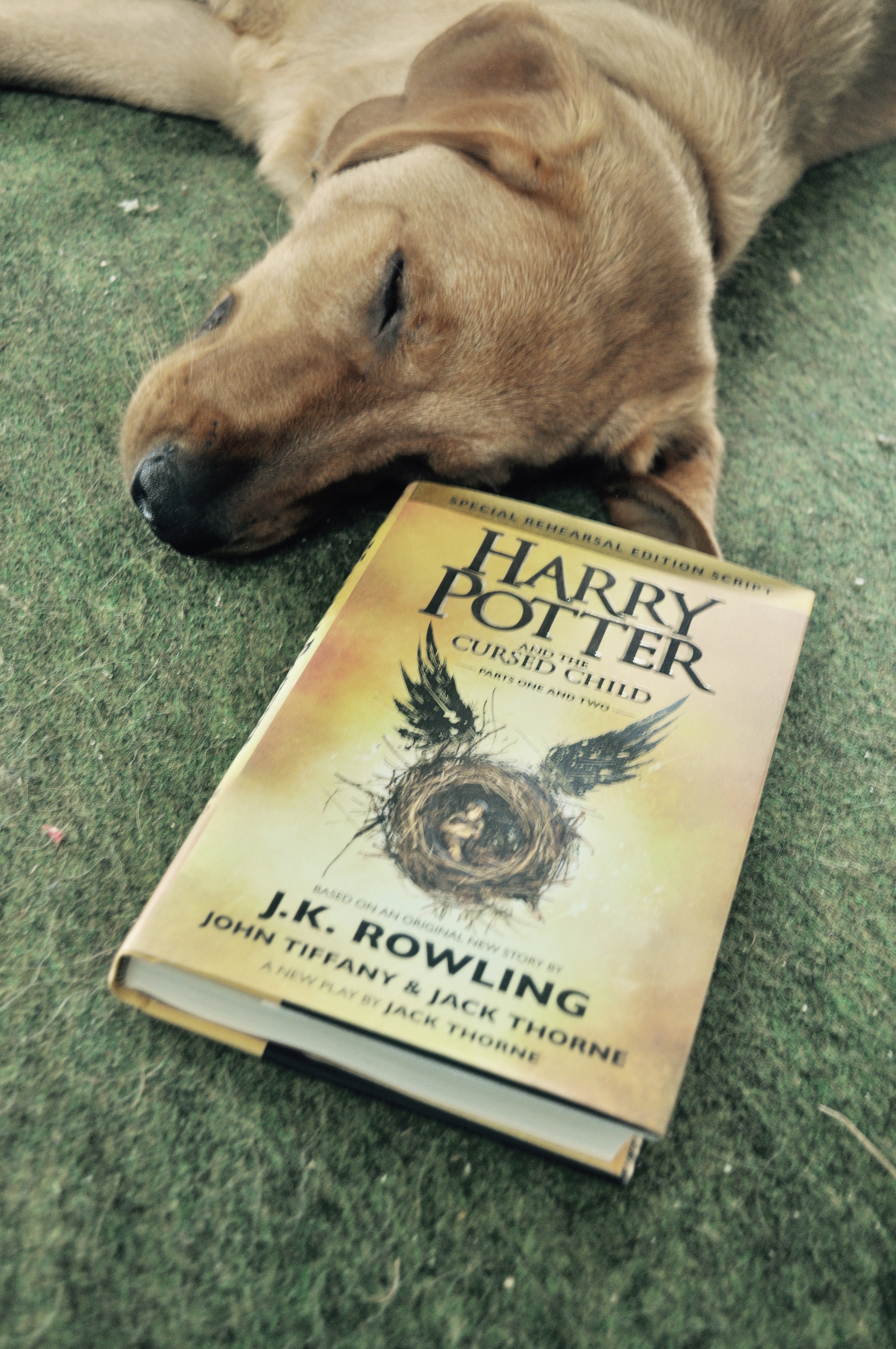Thoughts on Cursed Child and a Lesson or Two on Character
In spite of all the hype about Harry Potter and The Cursed Child, I didn’t know what to expect when I sat down to read it. Was this going to be one of those instances where the author just couldn’t let go and ruined the series? Was the format going to give me a headache? Was it going even come close to the magic of the original series?
All these questions were shuffling through my mind while I walked the quarter mile back from my mailbox to my house. Even when I got home, I was hesitant to open it even though I was dying to know was inside. I went outside, picked some zucchini, then gave into curiosity and opened the package. After running my hands over the cover and smelling the pages, I started reading.
I had to work hard to keep up with the first few chapters as they quickly moved through time. Then, as the prologue-ish section ended and the action took off, I was once again under J. K. Rowling’s spell. The next five hours flew by, and I reached the inevitable words “The End.”
After months of anticipation, it was over in five hours. At first, it seemed a bit anticlimactic for the story to pass so quickly. However, I was left thinking about the piece long after I read the last page.
In the end, the book was more than a fast ride through a twisty time traveling plot. It was a lesson about character.
Too often, I read YA books and middle grade books in which the characters undergo rather terrifying adventures that would leave a real person traumatized. By the end of the book, the adventure is over and the character is changed but whole. A little epilogue shows the reader that things are going to be okay. Even the Divergent series, whose ending left one of the main characters grieving, had an optimistic, hopeful ending.
Now, there is nothing wrong with these endings. The make me, as a reader, feel satisfied. However, I always get the gut feeling that there is more to the story.
At the end of Deathly Hallows, when there was that scene with everyone grown up sending their first child off to Hogwarts, it felt a little too neat and tidy, like they survived a traumatic battle just to go on and have perfect lives. It was too much of a happily ever after ending for a series that got so dark before it ended.
It was a relief, then, to see that in Cursed Child, Harry was still struggling with what happened in his youth. He wasn’t a perfect dad or perfect wizard. He was flawed, human, and still haunted by the terrors of his childhood.
Cursed Child made Harry and his gang more real for me. It reminded me that the best characters are the ones who are flawed and who make human mistakes. They do stupid things that make me cringe, and because of it, both the characters and I learn something profound.
The lines were blurred, not as black and white as the earlier books. Dark Magic didn’t go away just because Voldermot was dead. It reminded me that I don’t have to write perfect endings or perfect characters. My protagonist doesn’t have to be likely or do the right thing. The more fuzzy and gray I can make things, the more interesting it gets.
Remember, if you feel like your stuck, or need to improve, the books on your shelf can be the best teachers. Read and re-read your favorites, noticing the moves they make as they describe the setting, move you through the plot, develop characters and bring you to the end. Read to learn just as much as you read for fun.

©Sara Codair